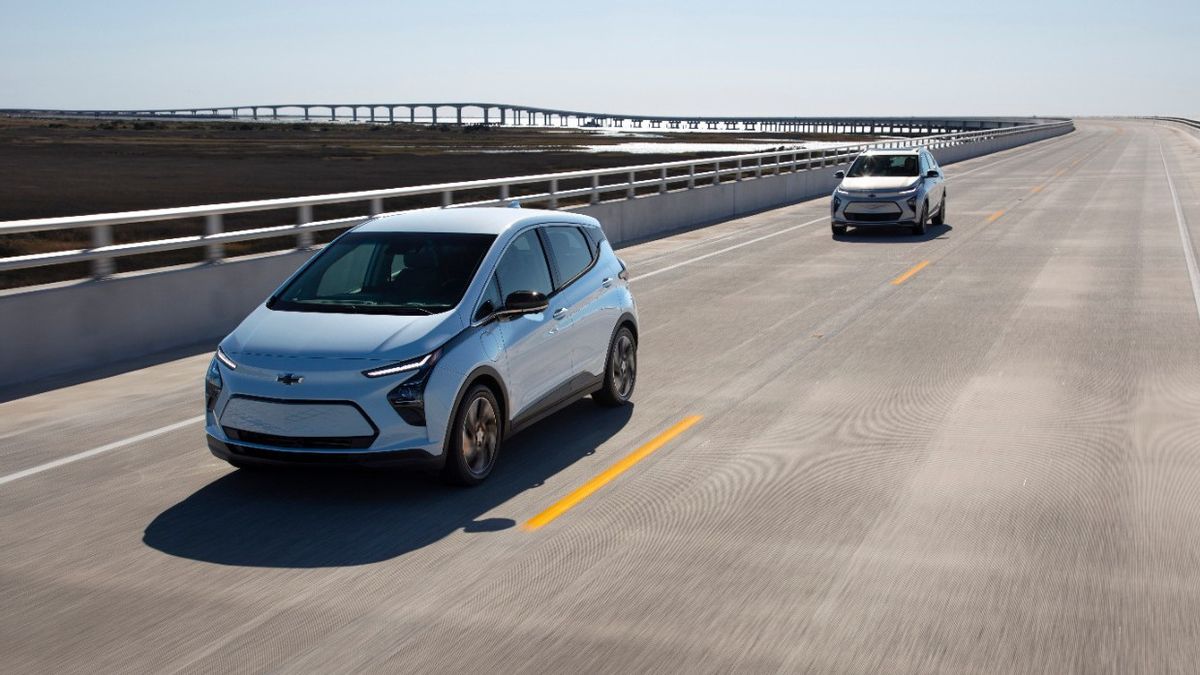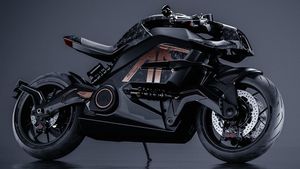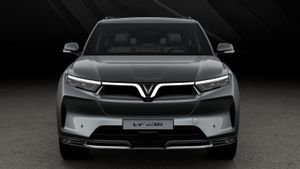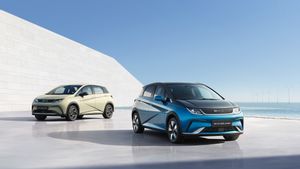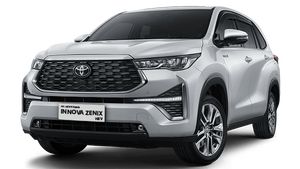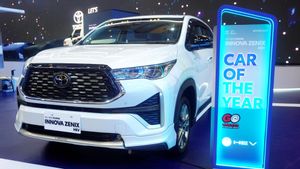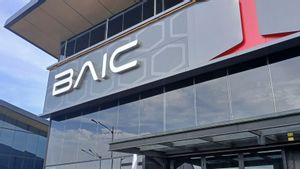JAKARTA - Electric vehicles (EVs) are considered safer than internal fuel vehicles (ICEs), especially if operated and treated properly. However, a number of fire incidents involving EVs and lithium-ion batteries have created concerns about putting them in the garage.
The latest incident was the Fremantle Highway cargo ship fire that occurred this summer. The fire was thought to have been triggered by EVs or several EVs between 3,784 Mercedes-Benz and BMW vehicles aboard the ship, of which 498 were electric cars.
Quoted from Autoweek, August 30, the data shows that vehicles with internal fuel (ICE) are more often caught in fires than electric vehicles (EVs), as senior Raidhouse analyst Mike Austin said. However, he confirmed that EVs are sometimes more difficult to control when fires occur.
One of the reasons is that nickel-based batteries in EVs create their own oxygen during thermal events, meaning the battery caught fire quickly and was difficult to extinguish.
In the case of cargo ships, EVs are a problem because if they weren't the cause of the fire, but if the fire was big enough and the heat hit the battery pack, a big problem would be.
Meanwhile, General Motors once recommended owners of the Badminton Bolts to park their cars outside the home instead of in the garage and limit maximum charging to 90%, which is a factor if there is damage to the battery. In addition, nickel-based chemical batteries will also last longer if they are filled in a regular manner of up to 80% or 90%.
But according to Austin, the threat of a greater fire is on electric bicycles and electric scooters. What about the e-bike fire? According to The New York Times, lithium battery fires from e-bike and e-scooter have killed 14 people and injured 93 others, with 154 fires reported in New York City on August 14.
If you look at the large number of e-bike and e-scooter fires, the possibility of such problems being much higher or at least easier to question the components. For automakers, they spend a lot of effort to get rid of these errors and ensure the battery remains safe when an error occurs. Overarching is much cheaper than replacing tens of thousands of battery packages in the recall," said Austin, who is also the former Editor of Car and Driver.
اقرأ أيضا:
The good news is new technologies such as lithium-ferus phosphate (LFP) batteries and solid-state batteries that do not contain liquid electrolytes that are flammable almost completely eliminate this problem.
However, concerns about EV storage in the garage are still there, especially when problems occur in batteries or systems that can cause fires. Therefore, EV owners and manufacturers continue to check and ensure that the battery system is safe and tractable in case of a problem.
The English, Chinese, Japanese, Arabic, and French versions are automatically generated by the AI. So there may still be inaccuracies in translating, please always see Indonesian as our main language. (system supported by DigitalSiber.id)
